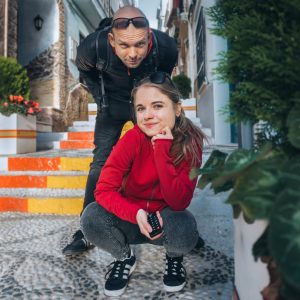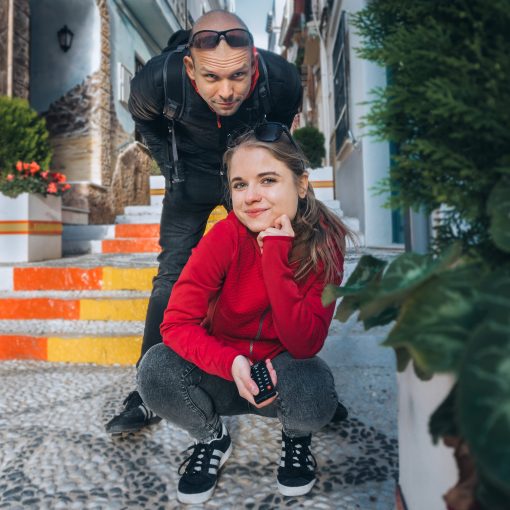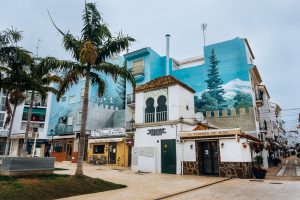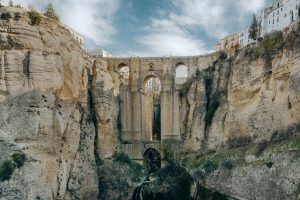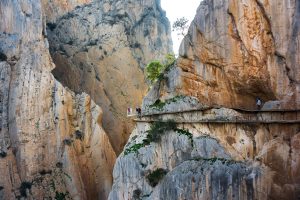Are you planning your next trip and wondering what are the best things to do in Ronda? You’ve probably already seen photos of the famous Ronda Bridge, but is there something else to see? Won’t you be bored? Wonder no more! We were there, saw it all and now we can help you plan your dream trip to Ronda. With this travel guide, you won’t miss any of the cool places in this charming little Spanish town. Vamos!
Interesting fact. Ronda is one of the oldest towns in Spain! It was first settled by the Celts in the 6th century BC and later inhabited by the Romans and Moors. Julius Caesar declared it a city in the 1st century AD. While wandering around Ronda you can feel that it’s full of history and mysteries. And it looks awesome in photos too!
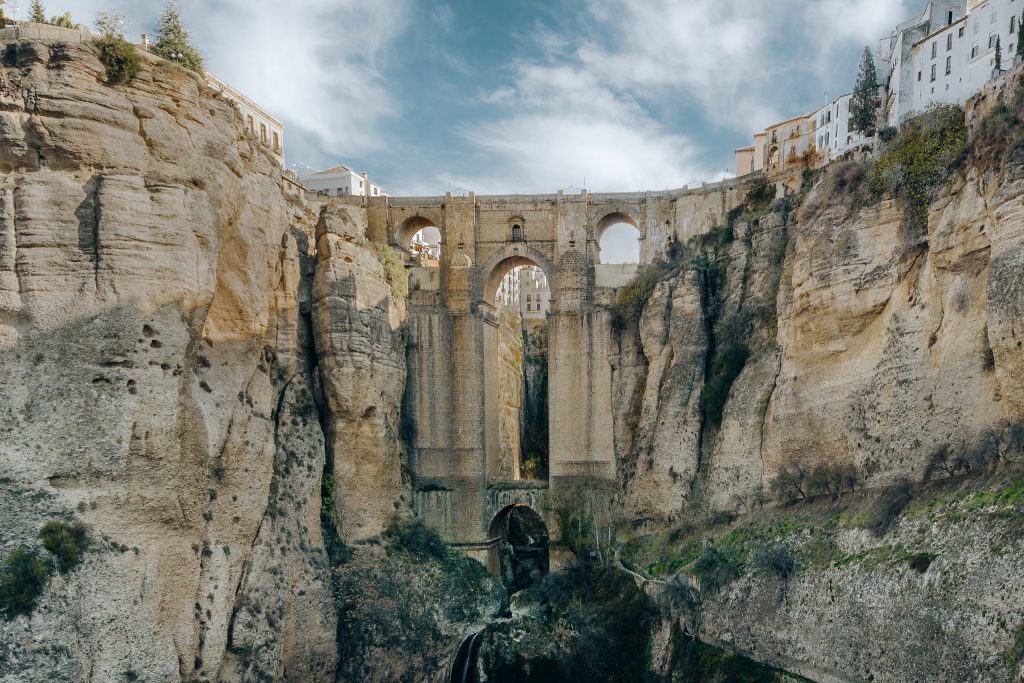
This website uses affiliate links thanks to which we may earn a commission for purchases you made at no additional cost to you. If you like the content, consider using those links to support us. Thank you!
Ronda, Spain FAQ
Ronda is a small Spanish city located in Andalusia in the Province of Malaga, at an altitude of about 739 m a.s.l. It’s one of the towns that are included in the Sierra de las Nieves National Park.
Of course! Ronda is a place worth visiting, especially its charming old town. The famous bridge, narrow cobbled streets full of beautiful (and sometimes shabby) buildings and squares, small shops, and hidden alleys… Ronda has it all, and even more. It’s a very pleasant place to discover. Also, thanks to its location on higher terrain, Ronda offers spectacular views over the nearby areas.
Ronda is best known for the spectacular Puente Nuevo, a bridge that crosses El Tajo de Ronda Gorge and connects the old town with its modern part. The city is also famous for its charming old town, spectacular views over the surroundings, and… being the birthplace of bullfighting! Without a doubt, Ronda is one of the most beautiful Andalucian white villages which makes it one of the most visited places in Spain.
Ronda is a perfect destination for day trips from bustling cities on Costa del Sol, and great weekends or few-day quiet getaways. One day is enough to see all the main city landmarks without rushing. If you want to know Ronda even better, we recommend staying for at least 3 days.
Ronda is a small and compact city, easy to get around on foot. Most parts of the old town are fairly flat, but keep in mind that there are some stairs and uphills, like one leading to The Puente Nuevo, which might cause problems for some people.
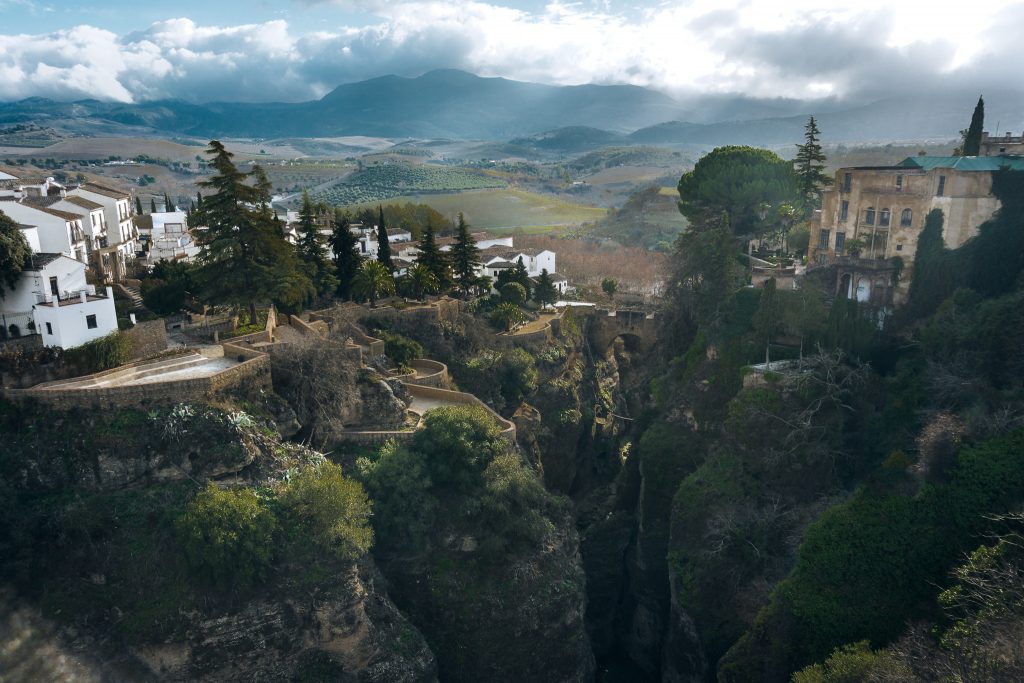
Things to do in Ronda, Spain on a day trip
Ronda Bridge – The Puente Nuevo
The number one thing to do in Ronda on a day trip is to visit and admire Ronda’s most famous landmark – the spectacular Puente Nuevo (eng. The New Bridge). It crosses El Tajo de Ronda Gorge and connects the old town with its modern part. Its span is 66 meters, and its height is an impressive 98 meters. Puente Nuevo for sure offers unforgettable views of the surroundings.
The first attempt at building the bridge in Ronda was in 1735 and it was completed very quickly. Unfortunately, the entire bridge collapsed in 1741, taking the lives of 50 people due to poor construction. After this failure, another construction began in 1759 and took 34 years to finish (1793) and it stands still today.
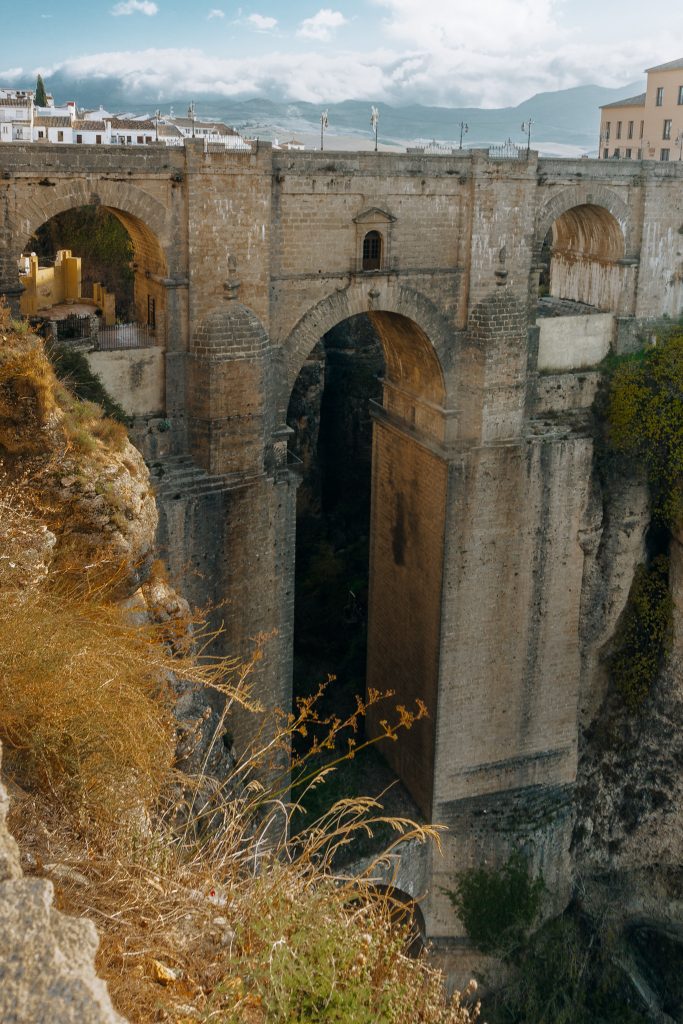
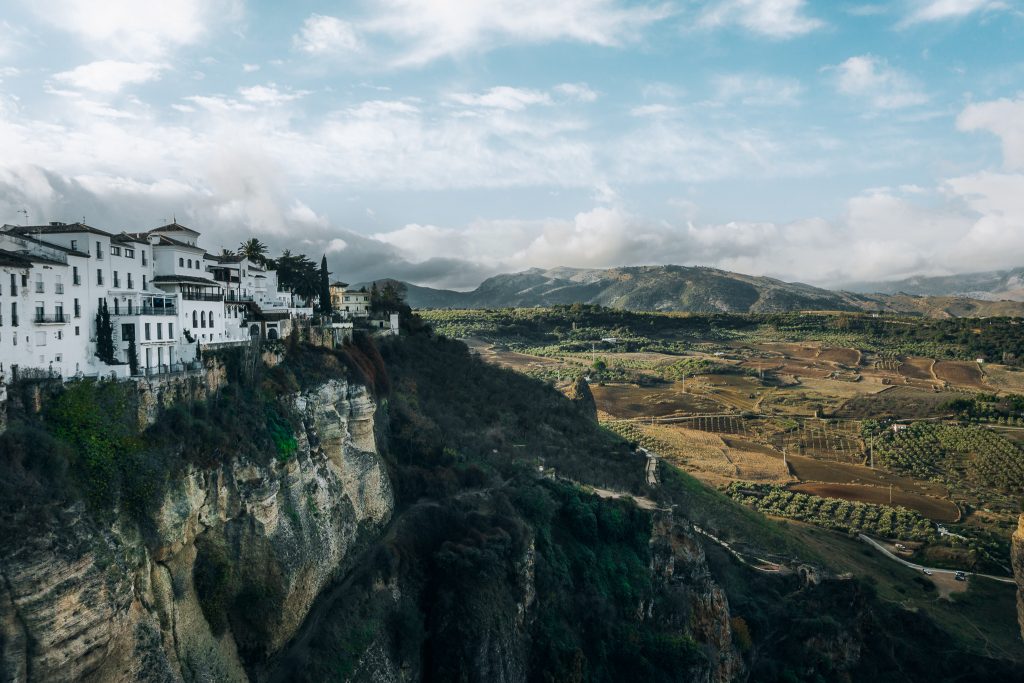
You can also admire Ronda Bridge from El Tajo de Ronda Gorge. In our opinion, it’s the best way to take a really good look at it and get a sense of the scale of this spectacular piece of engineering. The only thing you need to do is to walk down into the gorge.
There are several walking routes but we recommend starting in the Plaza de Maria Auxiliadora where there’s an unpaved path you can follow. Along it, you’ll find many viewpoints (like Mirador Puente Nuevo de Ronda, or Mirador del Viento) where you can admire Puerto Nuevo and the waterfall from different angles.
![]() Book now: Guided Walking Tour with English or Spanish Guide
Book now: Guided Walking Tour with English or Spanish Guide

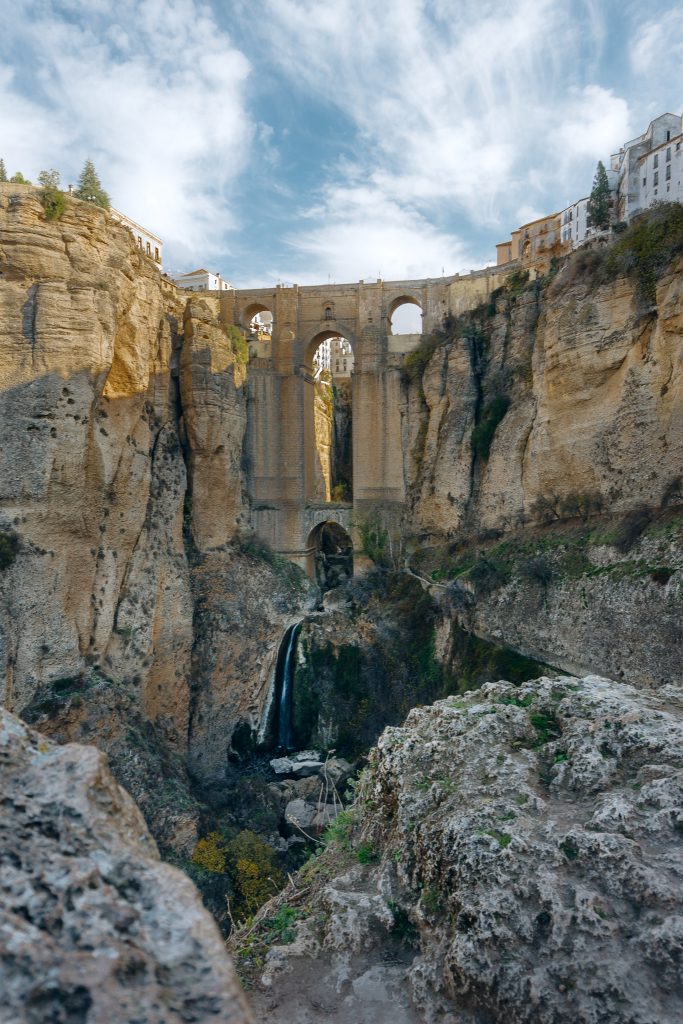
Ronda Bullring
The city is well-known to be the birthplace of bullfighting, so the next thing to do in Ronda is to visit Plaza de Toros (eng. Ronda Bullring). It’s the oldest bullfight ring in Spain, built in 1785 by Jose Martin Aldehuela, the same architect who designed Puente Nuevo. Inside you can see the arena and museum where you can learn about the history of bullfights. Outside of the bullring you can find statues of Antonio Ordonez (an important Ronda bullfighter) and a life-sized fighting bull.
Bullring no longer hosts bullfights, except once a year during the Feria de Pedro Romero festival in September. The festival’s highlight is a traditional bullfight, called the Goyesca Corrida, in which matadors wear costumes like those worn by 18th-century bullfighters.
Entrance to the museum and arena cost €9 (August 2024). For current prices and opening hours please visit rmcr.org website.
Right next to the bullring, you’ll also find Ronda’s Tourist Office.
Interesting fact. Ronda was the home of the famous Romero dynasty of matadors. Francisco Romero gave bullfighting its modern-day rules. He also introduced a red cap (known as the muleta) and faced the bull on foot (before that matadors performed on horseback). His grandson, Pedro Romero, became one of Spain’s greatest bullfighters. Also, Hemingway immortalized Ronda’s Bullring in his novel Death in the Afternoon.
![]() Discover: Accommodation options in Ronda
Discover: Accommodation options in Ronda

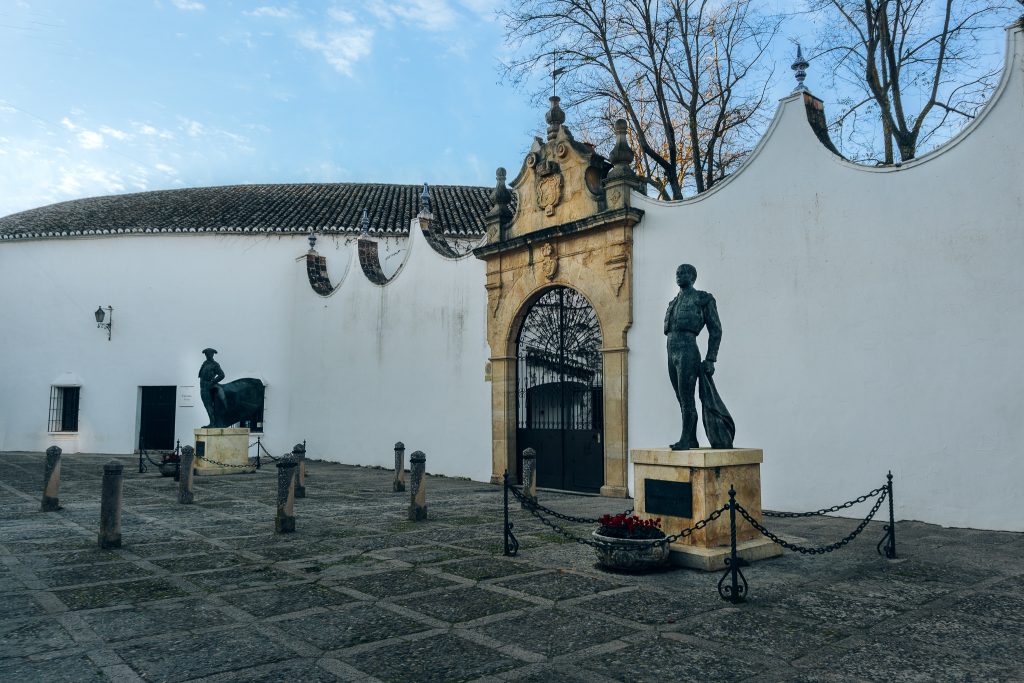
Alameda del Tajo Park
Alameda del Tajo is a beautiful and peaceful 19th-century public park, near the Plaza de Toros. It’s full of pine trees that offer a fantastic escape from the heat on hot days. From the park, you can also admire views over El Tajo de Ronda Gorge.
Viewpoint: Mirador de Ronda
Mirador de Ronda viewpoint is located right next to the Ronda Bullring. It’s fairly small and can get really busy in the afternoons so we recommend visiting in the morning. Viewpoint offers great views over El Tajo de Ronda Gorge.
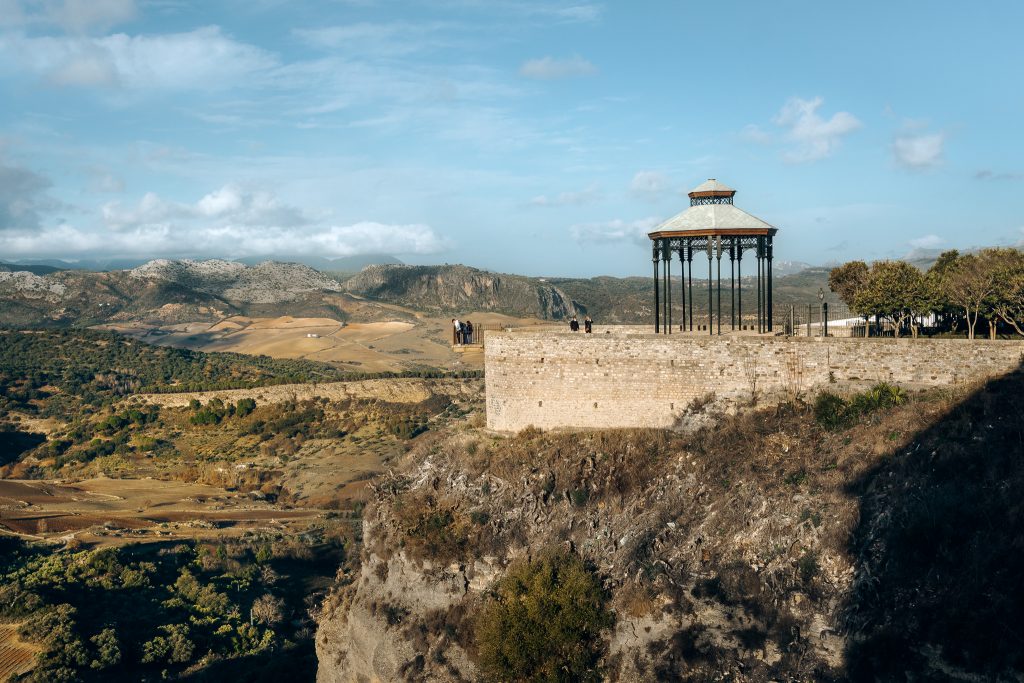
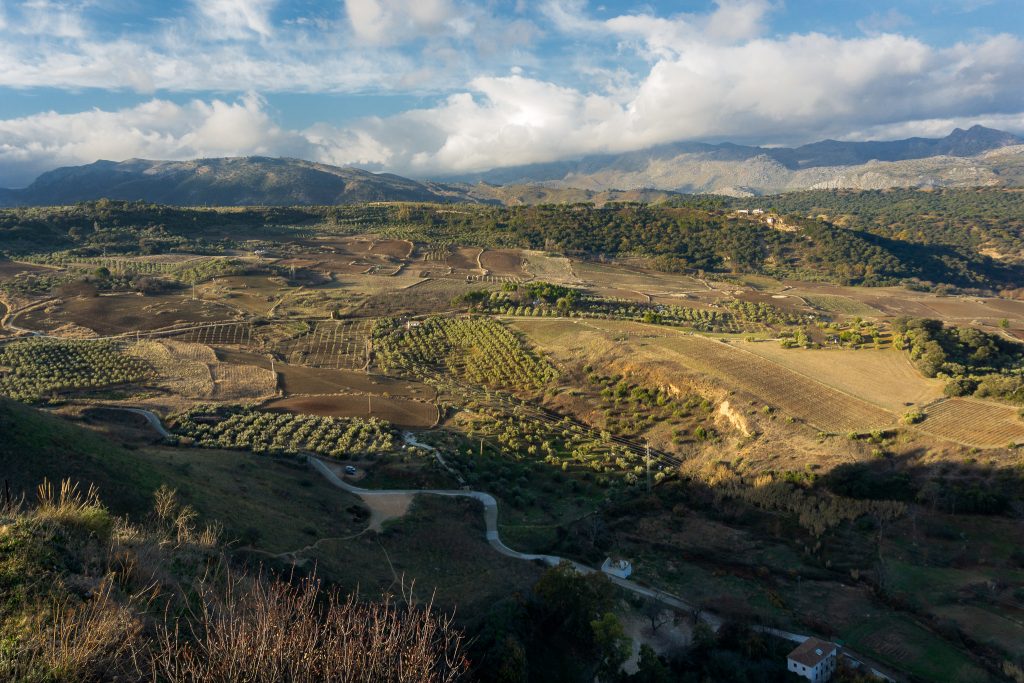
Pathway: Paseo de Ernest Hemingway
Paseo de Ernest Hemingway begins right next to Mirador de Ronda and it goes on until Puente Nuevo bridge. On this pathway, you can admire the bridge up close, as well as the views of the gorge and the other part of the city.
Ernest Hemingway wrote two non-fiction books about Ronda: Death in the Afternoon and The Dangerous Summer. Ernest’s most popular quote about the city: “Ronda is the place where to go, if you are planning to travel to Spain for a honeymoon or being with a girlfriend. The whole city and its surroundings are a romantic set. Nice promenades, good wine, excellent food, nothing to do… “- Ernest Hemingway
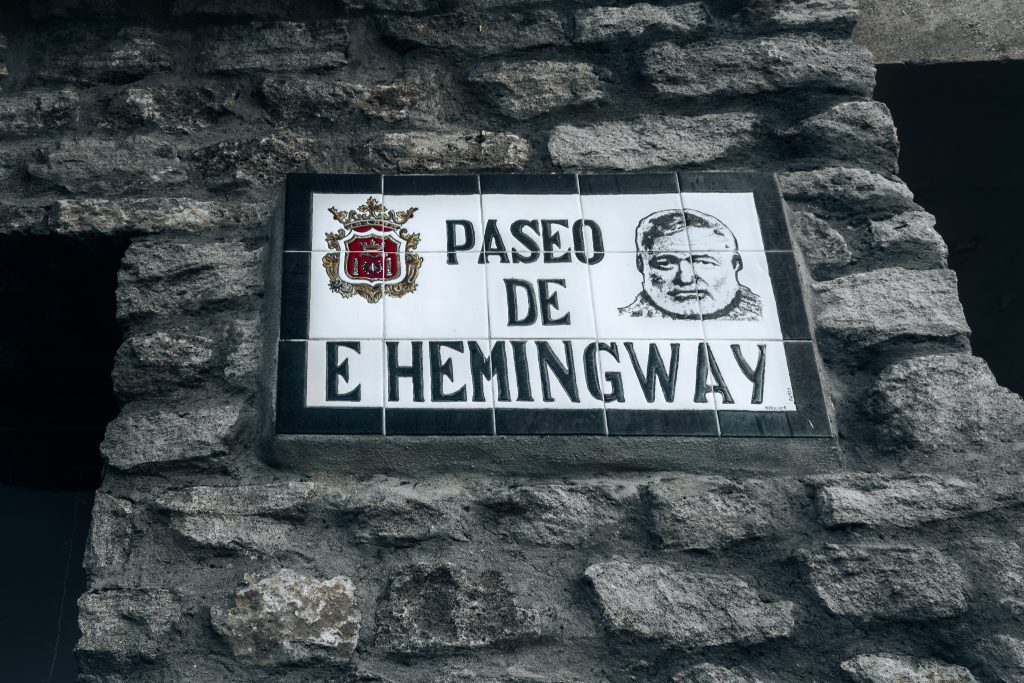
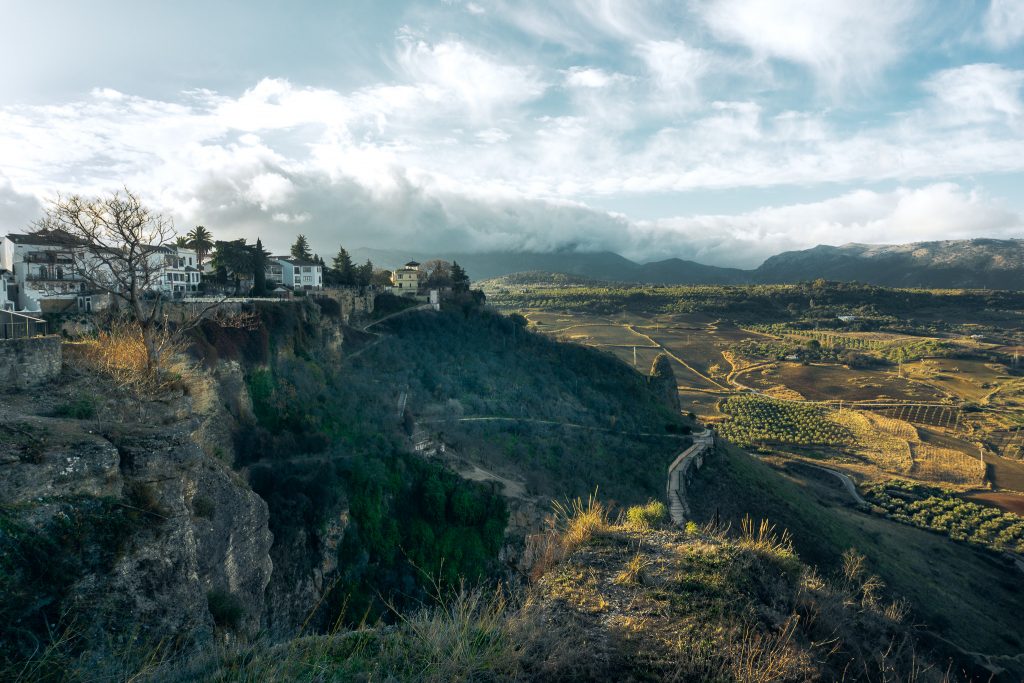
Viewpoint: Mirador de Aldehuela
On the other side of the bridge, you’ll find Mirador de Aldehuela, one of the most popular viewpoints in Ronda. Here views of the other part of El Tajo de Ronda Gorge are waiting. The viewpoint has been named in honor of the architect José Martín de Aldehuela, the architect who designed Puente Nuevo bridge. Be sure to add this viewpoint to your list of things to do Ronda – you won’t regret this.
![]() Book now: Guided Tour of Ronda with an Official Guide
Book now: Guided Tour of Ronda with an Official Guide
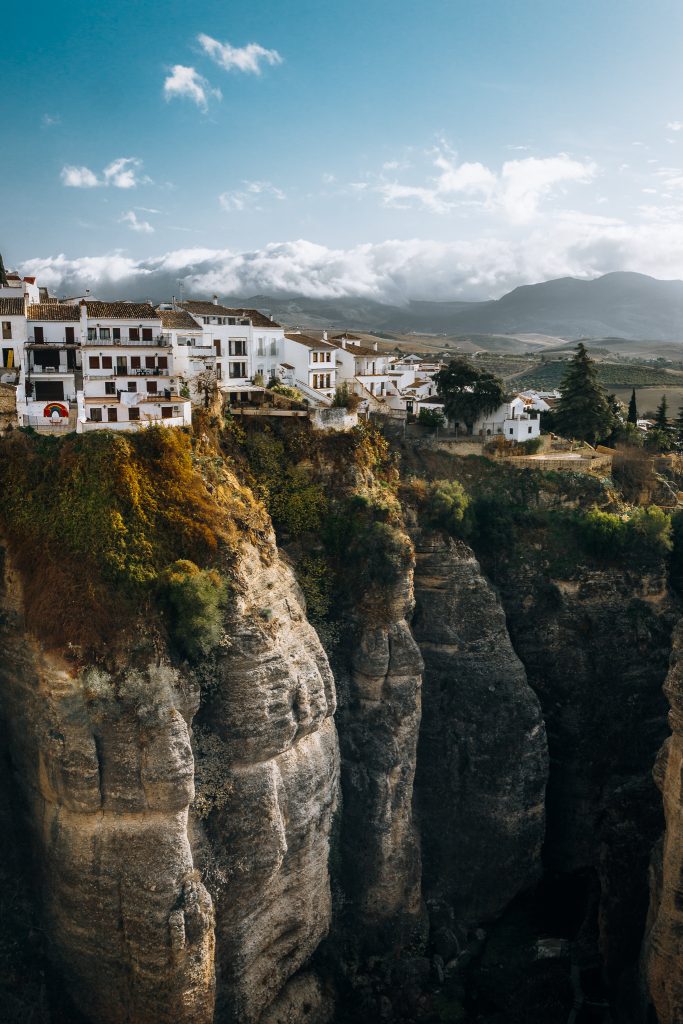
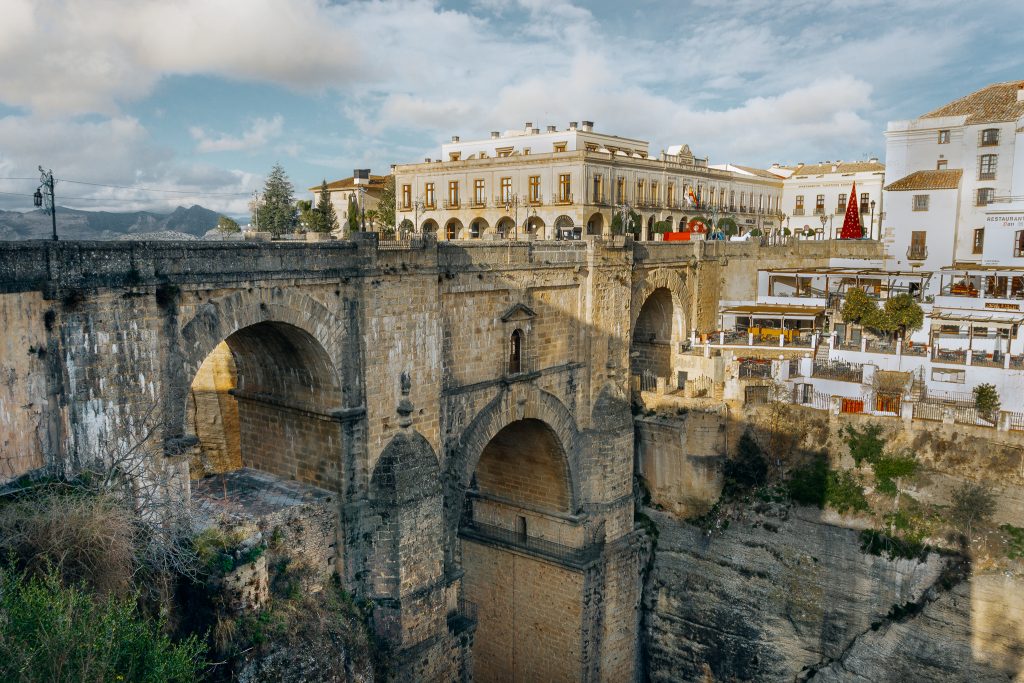
Mirador de los Viajeros Romanticos
Mirador de Los Viajeros Romanticos (eng. Viewpoint of the Romantic Travelers) isn’t really a viewpoint – it’s a wall full of azulejos (ceramic tilework). It’s a tribute to the romantic travelers who visited Ronda and left testimony of their visit.
Who are romantic travelers? Artists and writers like Alexander Dumas, Ernest Hemingway, or Orson Welles who searched for inspiration in Europe’s most unspoiled destinations.


Arab Baths
Arab Baths (es. Banos Arabes) in Ronda are considered the best-preserved Moorish Baths in Spain. The baths were built in the 13th century, along Arroyo de las Culebras (Snakes’ Stream), which was a source of spring water. The design is similar to Roman baths – the complex has cold, warm, and hot rooms, where people would gather and socialize.
They are no longer in use (as baths of course) but the site is open to the public for visits. The entrance costs €4.5 (August 2024). For current prices and opening hours please visit the juntadeandalucia.es website. You can buy online tickets in advance.



Walls of Ronda
Walls of Ronda provide a unique glimpse into the city’s past. It’s a series of city walls and gates that were built by the Moors throughout the Islamic era in order to protect the town from the invaders. The gate called Puerta de Almocábar was the largest and most protected.
The Murallas del Carmen is a particularly picturesque part of the walls and recently has been reformed. The best place to watch the walls is around Arab Baths, on the outside of the walls. You can also walk on top of some sections of the walls and feel like a warrior, looking out for incoming enemies. If you like that idea, be sure to put this place among things to do in Ronda on a day trip.
Near Puerta de Almocábar gate there is also the first church built after Ronda was retaken in the 15th century – Iglesia del Espíritu Santo. Construction began in 1485 and was completed 20 years later.
![]() Discover: Accommodation options in Ronda
Discover: Accommodation options in Ronda
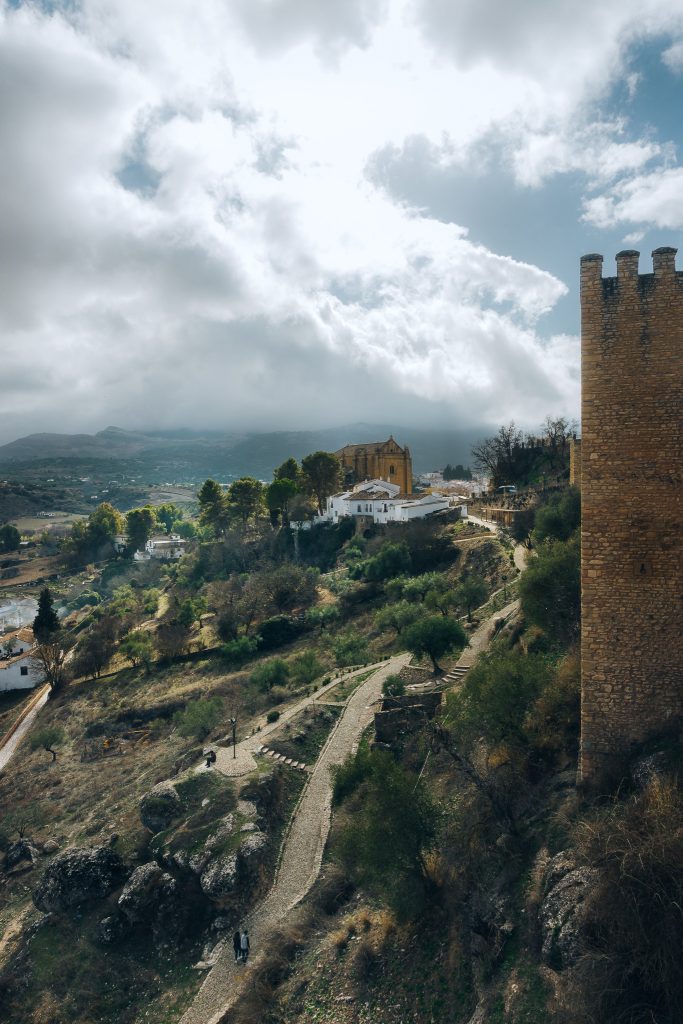
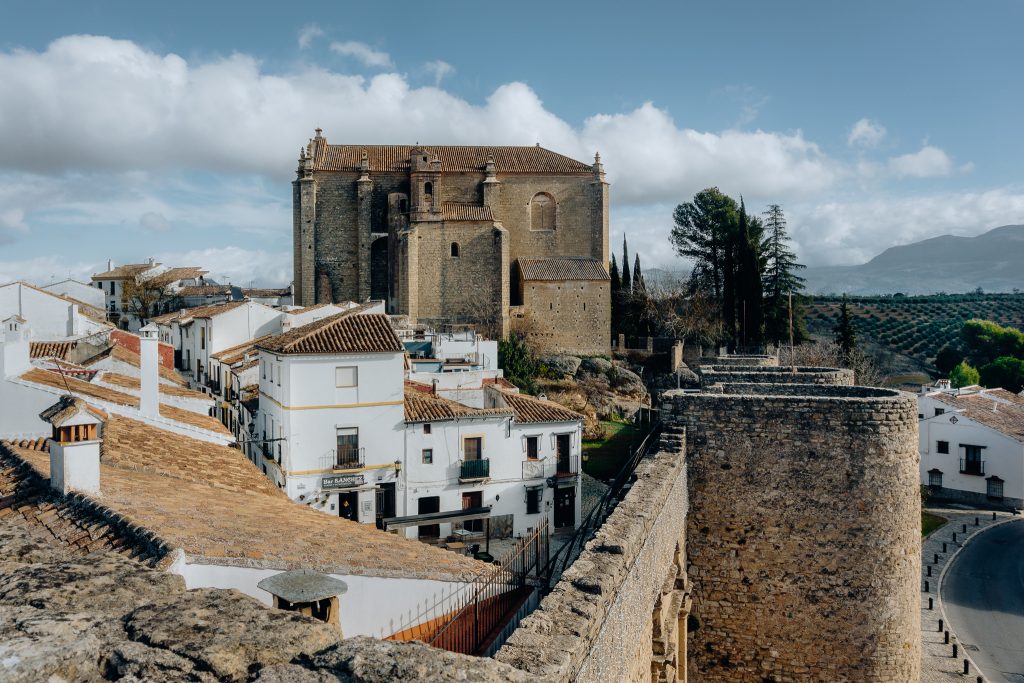
Plaza Duquesa de Parcent square
Plaza Duquesa de Parcent (eng. Duchess of Parcent Square) is a town square that houses buildings like Ronda’s Town Hall, Church of Santa María la Mayor, or Convent of Santa Isabel de Los Ángeles. There is also a small, green square in the middle of it, where you can rest for a moment.
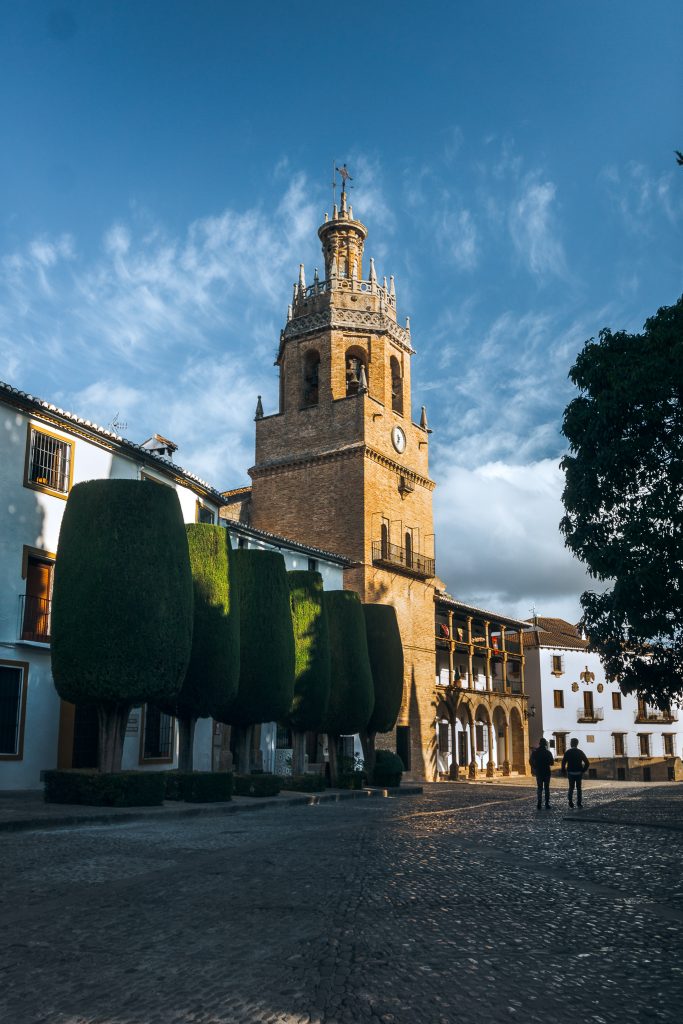
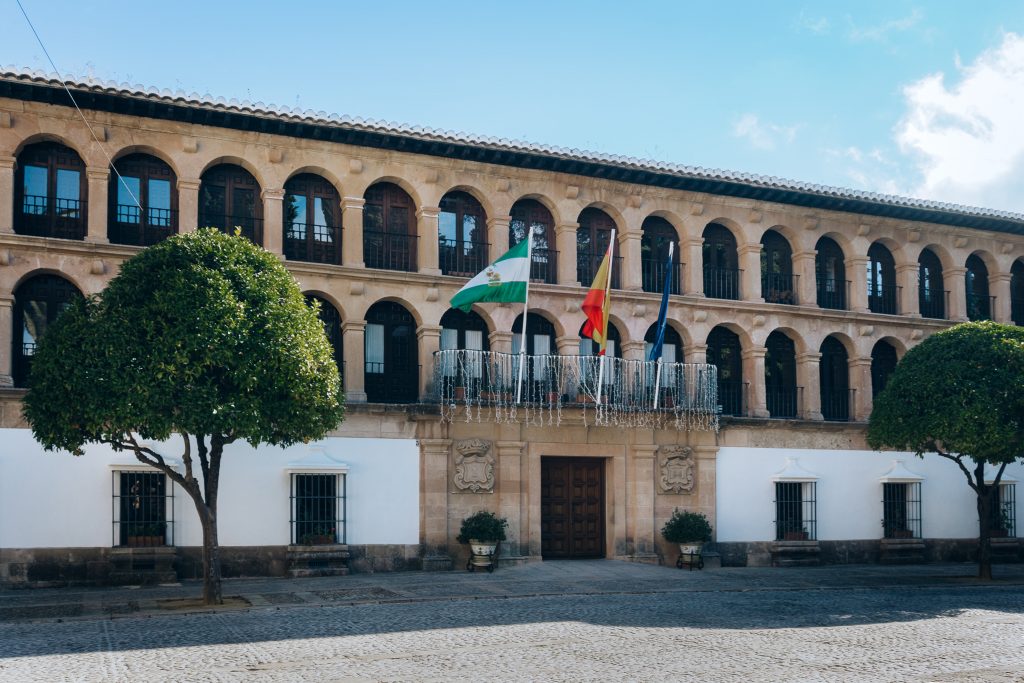
Church of Santa María la Mayor
Church of Santa María la Mayor (es. Iglesia Santa María la Mayor) has long been a place of worship. It was a pre-Christian Roman altar, Visigoth church, Muslim mosque built in the 14th century, and then converted to a cathedral in the late 15th century. Most of what remains today was rebuilt after an earthquake in 1580.
The church is open for visits, entrance costs €4.5 (August 2024). For current prices and opening hours please visit colegiataronda.com website.


House of the Moorish King
La Casa del Rey Moro (eng. House of the Moorish King) was, contrary to its name, built in the 18th century on the site of a former Moorish castle. It was only named after a tile on its facade which portrays a Moorish King, but no king ever lived there. It consists of 3 elements: the water mine of the Muslim period, a palace of Neo-Mudejar style designed by the Duchess of Parcent at the beginning of the 20th century, and the gardens designed by Jean Nicolas Forestier in 1912 on behalf of the Duchess.
Currently, the palace is undergoing renovations and is not open to the public. But you can visit the gardens and water mine. Opening times vary due to the summer and winter timetables. Normal tickets cost €10, and only €3 for children under 12 years old (August 2024). For current prices and opening hours visit casadelreymoro.org website.
![]() Book now: From Malaga: Full-Day Bus Trip to Ronda and Setenil
Book now: From Malaga: Full-Day Bus Trip to Ronda and Setenil
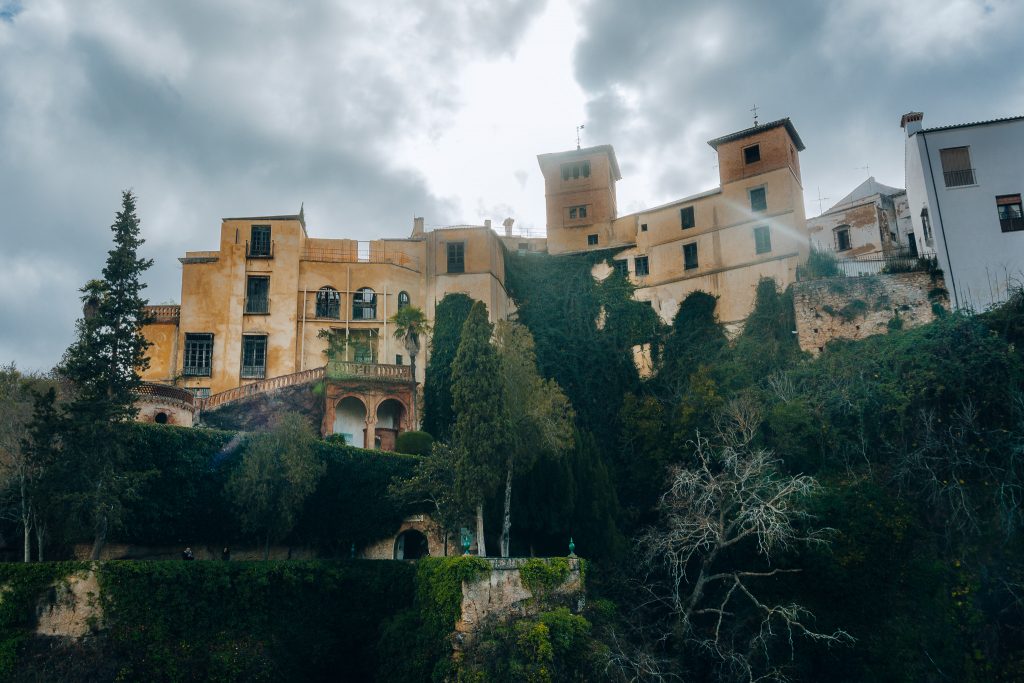
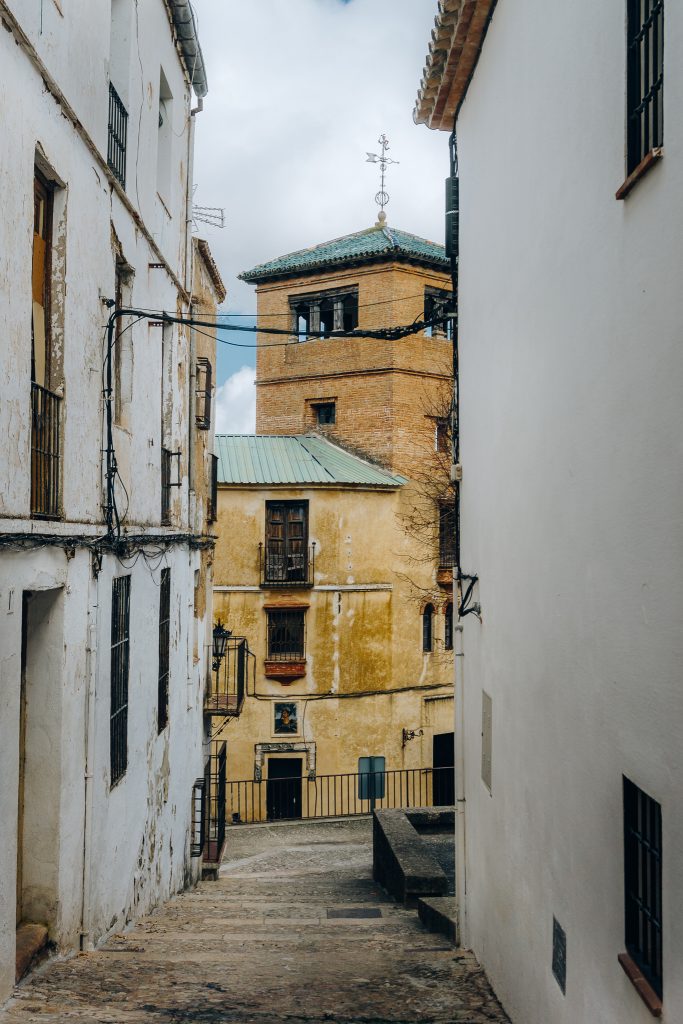
Cuenca Gardens
Opposite La Casa del Rey Moro you’ll find Jardines de Cuenca (eng. Cuenca Gardens). They were created in 1975 to celebrate the partnership of Ronda with the city of Cuenca. It’s a series of terraces at different heights where fantastic views over the town, the bridge, and the gorge await.
![]() Discover: Accommodation options in Ronda
Discover: Accommodation options in Ronda
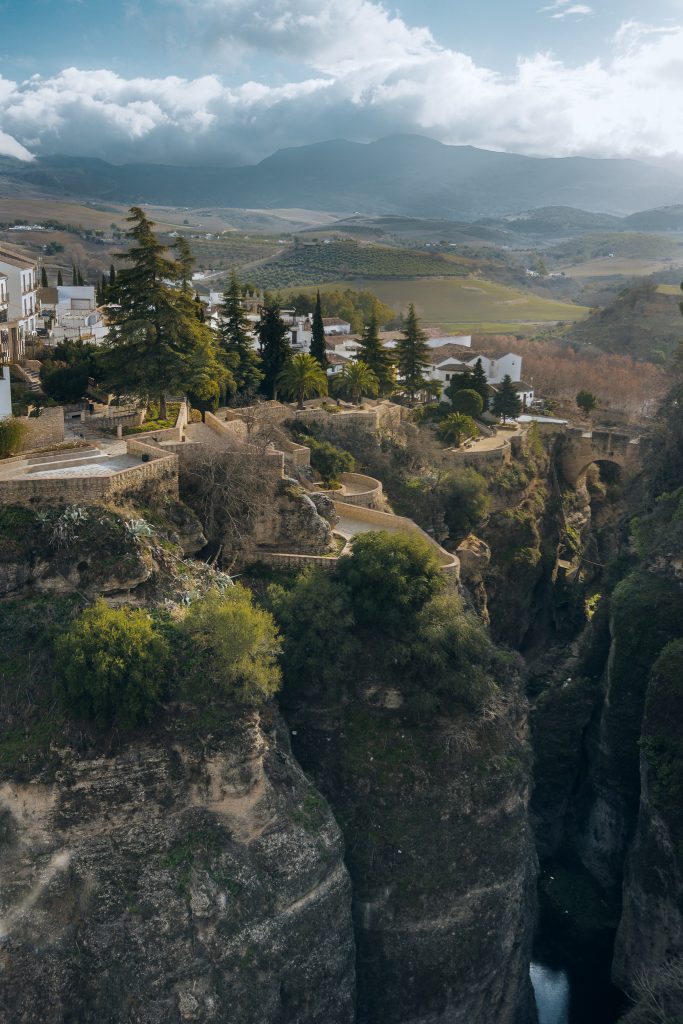
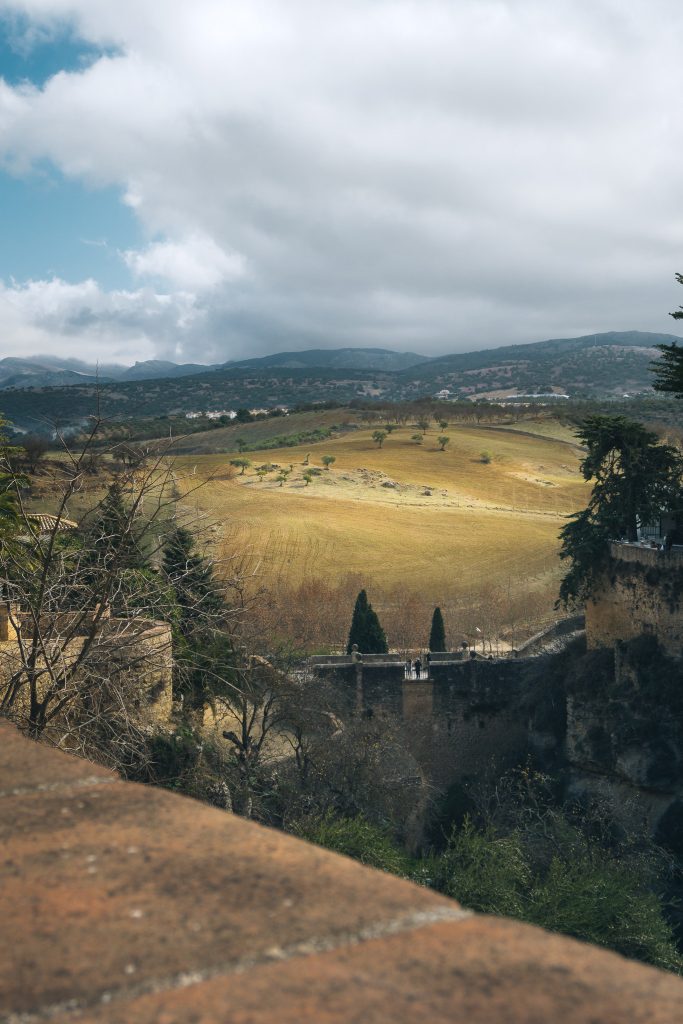
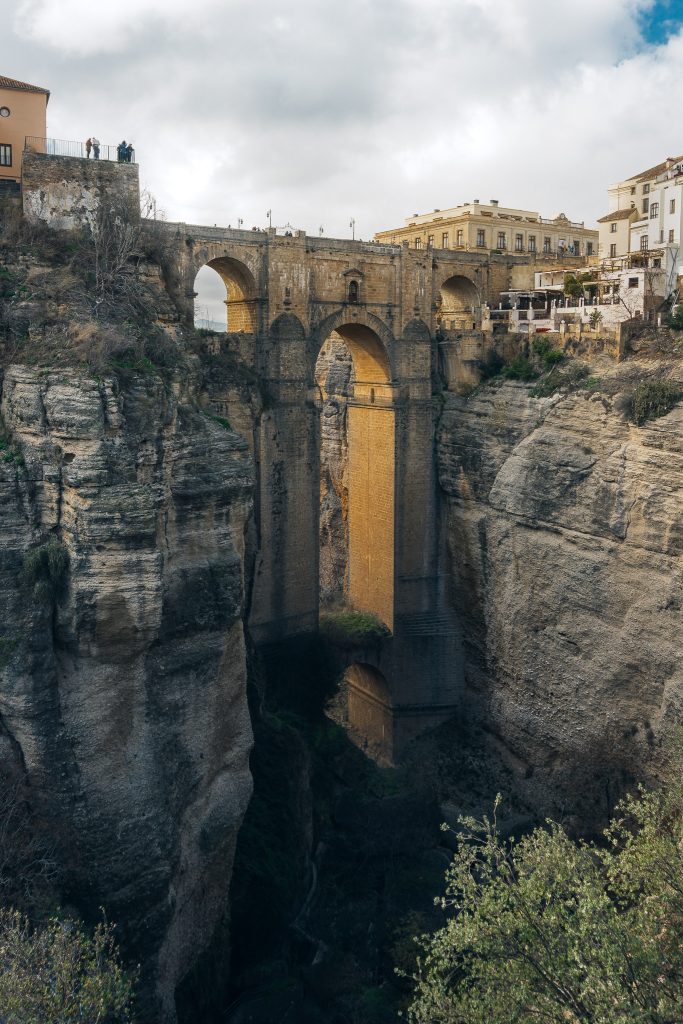
Lara Museum
Lara Museum (es. Museo Lara) is a private collection of historic weapons, clocks, scientific instruments & witchcraft-related items of its founder – Juan Antonio Lara Jurado. A normal ticket costs €4, and a reduced one €2 (August 2024). For current prices and opening hours visit museolara.org website.
Streets of Ronda Old and New Town
While visiting all of the above places, you’ll stroll through the charming, narrow cobbled streets. Take time to admire beautiful houses, small shops, and hidden alleys.
Also, have a look at Plaza del Socorro square with the Statue of Hercules and Church of Our Lady of Help, and Plaza España square (right next to the Puente Nuevo bridge and Mirador de Aldehuela viewpoint) which now is home to New Bridge Interpretation Center and… old-school McDonald.
![]() Book now: Private Walking Tour in Ronda, The Dream City
Book now: Private Walking Tour in Ronda, The Dream City

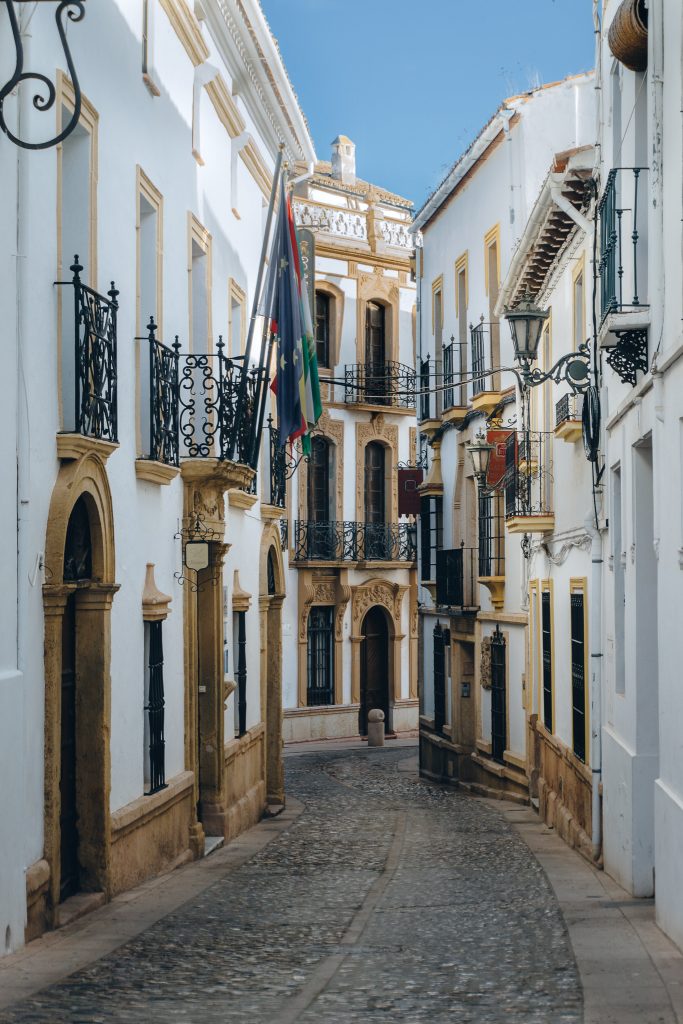
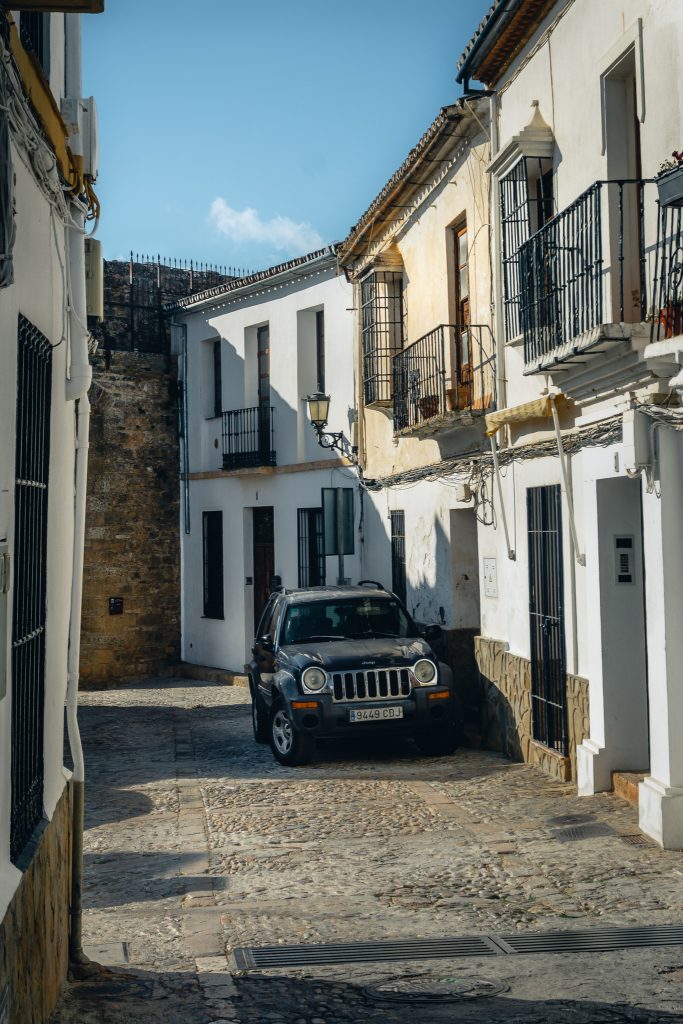
How to get to Ronda, Spain?
Ronda is located about 100km from Malaga, 65km from Marbella, 95km from Mijas Pueblo, and 130km from Sevilla. The easiest way to get there is by car, train, or by bus.
Where to park in Ronda?
Ronda offers several paid underground car parks in the town center. If you want to save a buck we recommend leaving your car in this free parking lot, about 1km (15min walk) from the Plaza de Toros.
Airports near Ronda
The closest airports to Ronda are located in Gibraltar (55km away), Malaga (80km away), and Seville (140km away). From each of them, you can reach the city by bus. You can check the connections you are interested in on the rome2rio.com website.
![]() For great car rental deals visit: Rentalcars
For great car rental deals visit: Rentalcars
To Ronda by bus
From many places, you can easily get to Ronda by bus. There are direct and usually cheap connections from many places like Malaga, Gibraltar, Sevilla, or Mijas. Please check the connections you are interested in on the rome2rio.com website.
To Ronda by train
Ronda has a train station so you can get there easily by train from cities like Malaga, Seville, Antequera, or Algeciras. You can check out a map of available connections on acprail.com.
![]() For great train ticket deals visit: Trainline
For great train ticket deals visit: Trainline
Camping Ronda
If you’re traveling by camper, places like Área de Autocaravanas Ciudad de Ronda, Camping El Sur, or Área Autocaravanas Ronda might interest you.
To Ronda with an organized tour
If you don’t want to put too much effort into planning, you can always take advantage of the guided tours and let someone else take care of all the details. For a wide selection and well-reviewed tour options visit GetYourGuide and Viator websites.
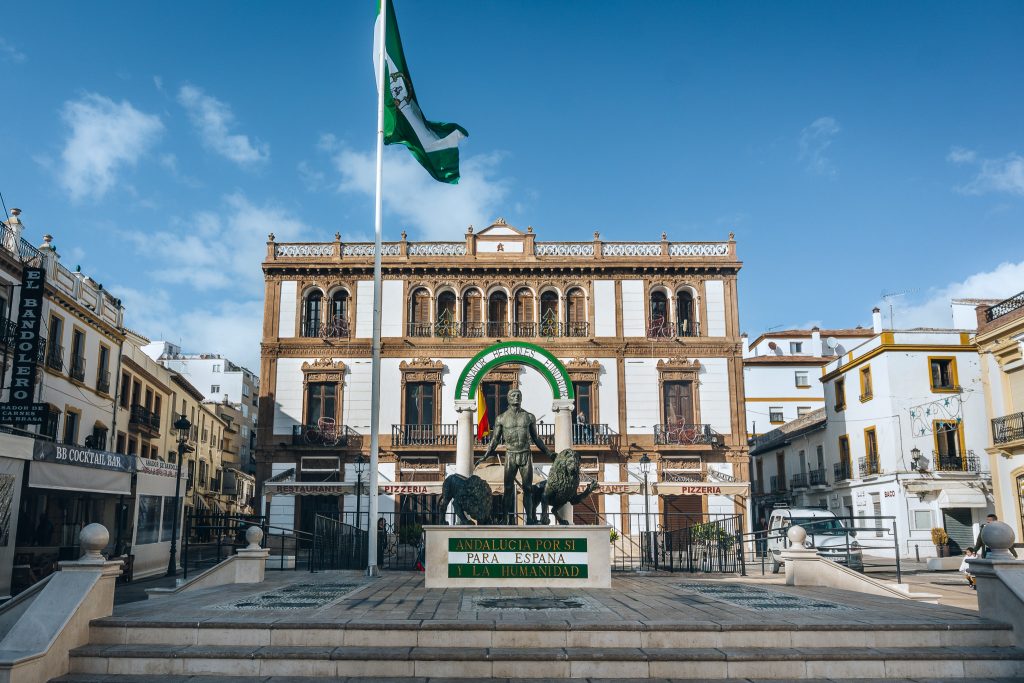
Things to do in Ronda, Spain on a day trip – Summing up
As you can see now, there are many things to do in Ronda, for all kinds of travelers. So no matter what you are looking for, chances are high that you’ll find that in this town. Hopefully, you’ll enjoy the visit as much as we did! Enjoy your time in this beautiful Andalusian town and let us know if it stole your heart. Maybe you’ll stay a bit longer and the magic of the place will inspire your next artistic creation? Next Hemingway… where are you?
Our opinion about Ronda
We really enjoyed our day in Ronda and to this day we think it’s one of the most interesting and beautiful white towns in Andalucia. We especially loved strolling among its old town streets, admiring the impressive Puente Nuevo bridge and the views over Ronda’s surroundings. Did the city inspire us artistically as it did for many others? Not necessarily, but that doesn’t make it less worth visiting and we’ve been there only for a bit!
For us, a visit to Ronda was a day trip from Mijas, where we lived for a few weeks. We visited it in December, around Christmas time, and during that time it was fairly quiet, without huge crowds. Without rushing we managed to explore all the places we had on our list in about 8 hours.
![]() Book now: From Malaga: Ronda and Setenil de las Bodegas Complete Tour
Book now: From Malaga: Ronda and Setenil de las Bodegas Complete Tour
Restaurants, accommodations, and map
Check out various recommended places below.
Where to eat in Ronda?
Here are your best, high-rated options in Ronda:
Where to sleep in Ronda?

Hotel El Tajo & SPA
Hotel El Tajo & SPA is a luxurious hotel located in Ronda offering stunning views of the Tajo River and the surrounding mountains. The hotel features an elegant spa with an indoor pool, sauna, steam room, as well as a rooftop terrace where guests can enjoy the picturesque views. The rooms are spacious and elegantly decorated, offering modern amenities such as air conditioning, free Wi-Fi, and flat-screen TVs.

Apartamentos Avanel
Apartamentos Avanel is a charming accommodation situated in the heart of Ronda. The apartments are fully equipped with all the necessary amenities, including a kitchenette and free Wi-Fi. The property also features a beautiful terrace with stunning views of the city and the surrounding countryside.

Apartamentos Turísticos Espinel
Espinel Apartments in Ronda offers comfortable and modern accommodation for travelers who want to stay in the heart of the city. The apartments are located in a historic building and feature a contemporary design with all the necessary amenities for a comfortable stay. Each apartment has a fully equipped kitchen, living room, and private bathroom.
